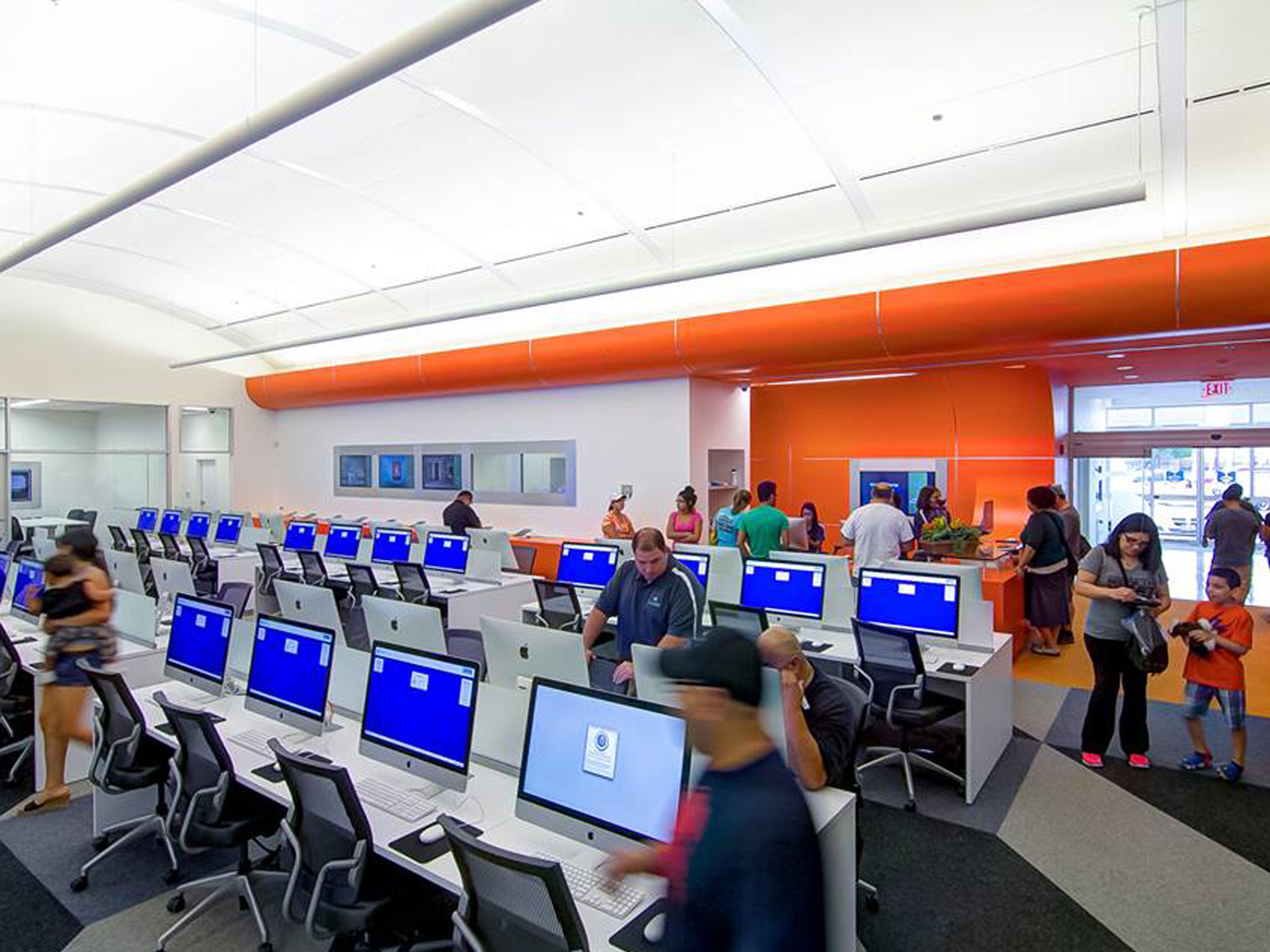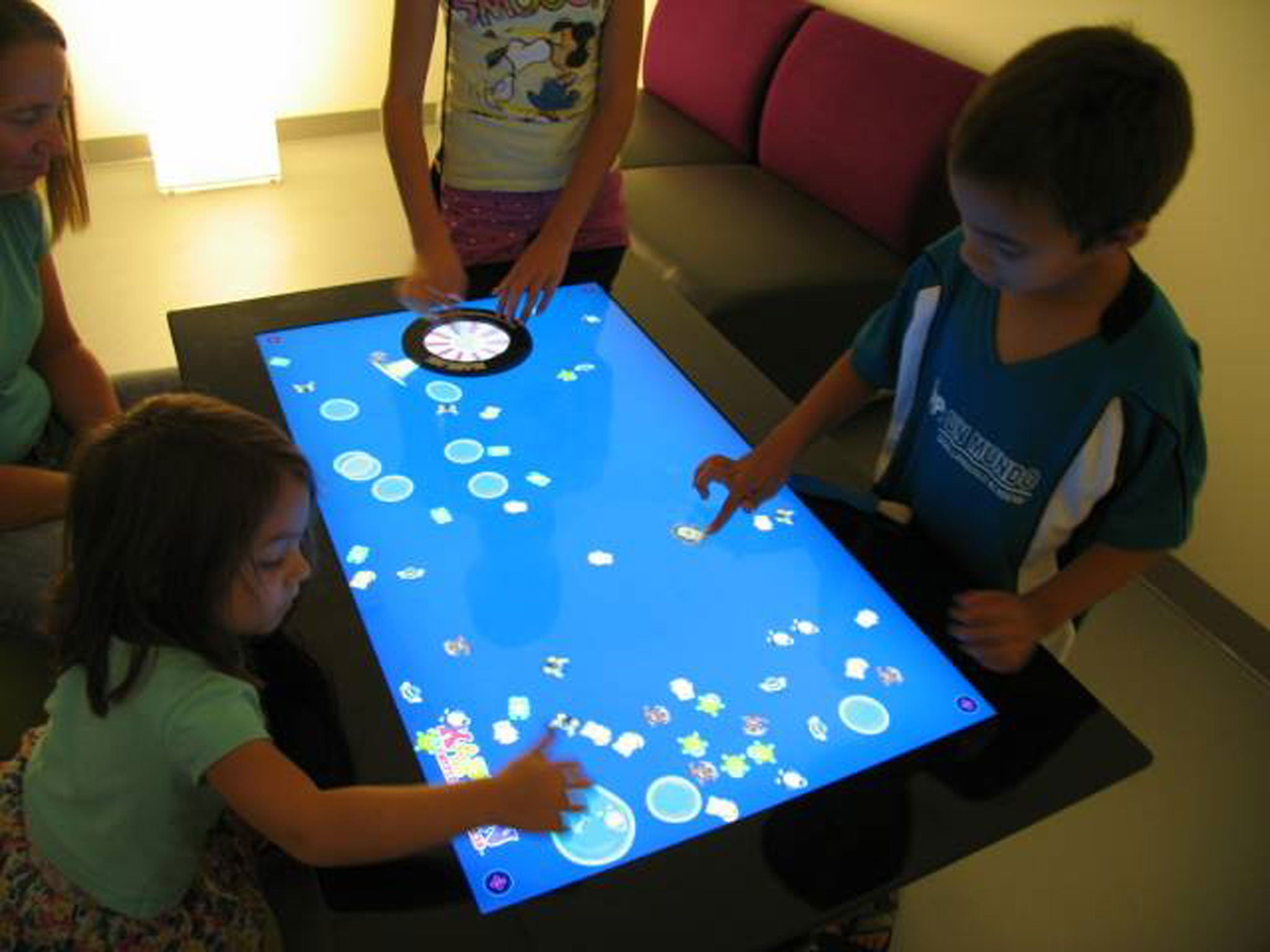World's first paperless public library in US Bexar County, Texas
Users check out e-readers rather than physical texts

Your support helps us to tell the story
From reproductive rights to climate change to Big Tech, The Independent is on the ground when the story is developing. Whether it's investigating the financials of Elon Musk's pro-Trump PAC or producing our latest documentary, 'The A Word', which shines a light on the American women fighting for reproductive rights, we know how important it is to parse out the facts from the messaging.
At such a critical moment in US history, we need reporters on the ground. Your donation allows us to keep sending journalists to speak to both sides of the story.
The Independent is trusted by Americans across the entire political spectrum. And unlike many other quality news outlets, we choose not to lock Americans out of our reporting and analysis with paywalls. We believe quality journalism should be available to everyone, paid for by those who can afford it.
Your support makes all the difference.In the world’s first bookless public library in the US state of Texas, the rows-upon-rows of books that fill traditional libraries have been replaced with high-tech gadgets that cater to both adults and children.
Instead of taking home books, registered residents of the south Texas county of Bexar - which has never had a public library or a bookstore - will be able to access over tens of thousands of titles from e-readers for free.
Since September, the county's 1.7 million residents have been able to check out and take home the machines, as well as use their own devices to access the library’s catalogue.
According to its website, the $1.5 million (£920,000) BiblioTech currently has 600 e-readers, 200 pre-loaded enhanced e-readers for children, and 48 computer stations, 10 laptops and 40 tablets to use on-site.
It claims its mission is to give the county’s residents with “necessary tools to thrive as citizens of the 21st century” for the “purposes of enhancing education and literacy” and “promoting reading as recreation”.

Laura Cole, special project coordinator at BiblioTech, told the Metro: “We wanted to create the best, most cost-effective way of providing library services to a population that is geographically distanced from existing services and a digital library was an obvious choice.
“Geography doesn’t matter if your library is in the cloud,” she said, referring to the ‘cloud’ system where the library’s books are stored online.
Addressing concerns that library users may be put off by technology, she said: “The thing that excites me most is that our staff can dedicate their time to helping visitors.
“They aren’t tied up re-shelving, filing and categorising. They spend most of their time providing one-on-one instruction with visitors, teaching people how to use devices and how to source materials. It’s a more interactive library experience,” she told the newspaper.
Replacement costs have also been factored in to the project. To prevent thefts, devices cannot access the internet once they leave the library.
“For the taxpayer, it’s far more economical to build and maintain an elibrary,” Dr Robert Schwarzwalder, an associate university librarian for the science and engineering department at Stanford University.
“Traditional libraries require much larger load-tolerances in construction due to the weight of materials, so are more costly to build. Book collections also require environmental controls that are costly to maintain,” he added.
Bexar County Judge Nelson Wolff who instigated the scheme is an avid reader and a keen collector of first edition texts, but told ABC News: “the world is changing and this is the best, most effective way to bring services to our community.”
Join our commenting forum
Join thought-provoking conversations, follow other Independent readers and see their replies
Comments